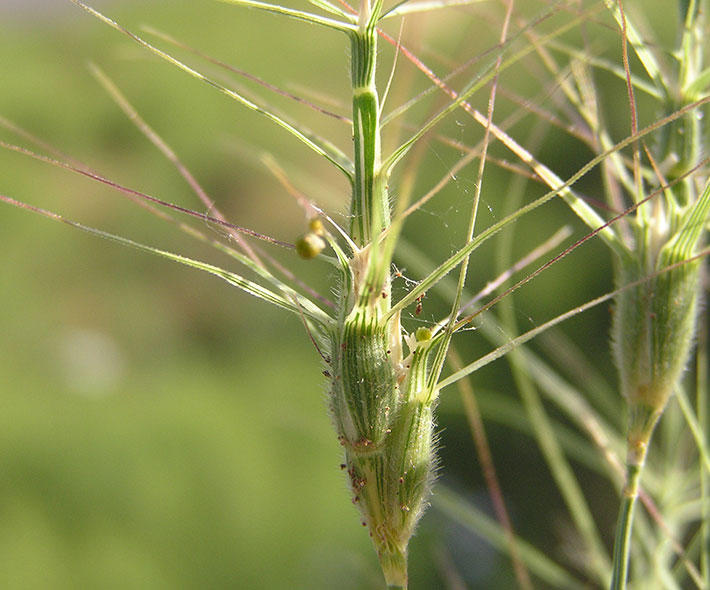IPBES recognizes why agrobiodiversity matters

The Intergovernmental Science-Policy Platform on Biodiversity and Ecosystem Services (IPBES) report, approved by more than 130 countries, recognizes the fundamental importance of conserving agricultural diversity for human and environmental well-being, the focus of Bioversity International's work.
The Intergovernmental Science-Policy Platform on Biodiversity and Ecosystem Services (IPBES) delivered the summary of its Global Assessment to a meeting of the IPBES Plenary in Paris last week, where it was duly approved. Press coverage of the report has concentrated on doom and gloom; ecosystems around the planet are deteriorating at an unprecedented rate, largely as a result of human activity and inactivity. Land use change, climate change, direct exploitation of organisms, pollution, and invasive species are flagged as the principle drivers of this loss, with agriculture accounting for many of these drivers.
For agricultural biodiversity, however, the report is both welcome and, perhaps, even somewhat optimistic. That is because it recognizes the fundamental importance of food systems and agriculture, which so many previous global reports have seen as the enemy of conservation. It also, for the first time in a global report of this nature, draws on indigenous and local knowledge, which is often especially relevant to the conservation of agricultural biodiversity.
The key paragraph is A6, which points out that the loss of “local varieties and breeds of domesticated animals” is a serious threat to global food security because it undermines the resilience of agricultural systems. Without this diversity, we cannot expect the food systems we depend on to be able to withstand and adapt to new onslaughts of pests and pathogens, to say nothing of altered growing conditions, that climate change will bring.
The report further flags that diet largely fails health, driving 20% of premature mortality, primarily due to the lack of diversity in diets, while recognizing that there are more than 30,000 edible plant species whose increased cultivation and consumption would have profound impact on both adapting to and mitigating climate change, and improving human health. Notably, this would require 50%-150% increases in fruit, nut and vegetable production and consumption – the very crops that are most dependent on pollinator services. What is worrying is that recent declines in pollinator numbers call into question our capacity to conserve the diversity of foods that underpin human health.
The report enumerates the losses. Not the overly familiar “75% of genetic diversity” that is bandied about, but solid numbers, where they can be found. “By 2016, 559 of the 6,190 domesticated breeds of mammals used for food and agriculture (over 9 per cent) had become extinct and at least 1,000 more are threatened.” Crop wild relatives come in for special mention, because they are important for long-term food security, help render ecosystems more resilient to stressors like climate change, pests and pathogens, and because they lack effective protection.
Bioversity International has long carried out the kind of work on crop wild relatives that the report calls for. A project in southern Africa*, for example, assessed the status of crop wild relatives and trained local people to conserve and make use of them. The project helped countries to prepare National Strategic Action Plans for conservation and use of crop wild relatives. Plans are underway to establish a regional network to provide formal protection to crop wild relative and in situ conservation.
It is actually quite a pleasant surprise to have one of these large, global syntheses recognize that agricultural diversity, at all levels, could also do with some conservation and protection. Too often, raising food is seen as inimical to conservation and sustainability. While it often is, driving changes in land use and contributing to climate change directly, it is also absolutely fundamental to continuing human well-being.
The report offers some ideas to move food systems in a more sustainable direction, most of which will be familiar to anyone who takes an interest. Sustainable agricultural practices are up there, obviously, as is better conservation of the agricultural biodiversity we still have, both key concerns of Bioversity International. Less obviously, the report calls for more transparency in food markets and supply chains, noting the importance of impacts on agricultural biodiversity, which our Agrobiodiversity Index is designed to track. Improved equity, reduced waste and healthy diets get their due too.
The report points out that each of the six scenarios it examined will fail to halt the decline without transformative change: “a fundamental, system-wide reorganization across technological, economic and social factors, including paradigms, goals, and values.” At its heart, this requires decisions to take into account the interconnections among the various forces driving changes in the natural world. It isn’t enough, the report says, to focus on land use, or exploitation of species, or climate change. These factors have to be considered in concert, as reflected in the primary action for agriculture:
Promoting sustainable agricultural practices, such as good agricultural practices, agroecology, among others, multifunctional landscape planning and cross-sectoral integrated management.
The document approved by more than 130 countries at the IPBES plenary was only the summary for policymakers. The full report, expected to run to more than 1,500 pages, will not be published until later this year. But, there is no need to wait. The summary contains enough evidence to prompt action and some clear priorities on the actions to take. The transformative changes that the report calls for now depend on all of us: individual consumers, policymakers from municipal to regional and international levels, and the private sector.
* The project is funded by the ACP-EU Science and Technology Cooperation Programme.
